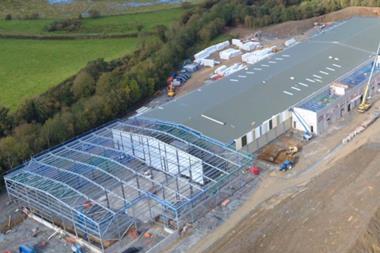
Demand for plant-based food is soaring and the category is worth millions. We’re seeing new, innovative products pop up every day that look and taste more and more like real meat.
There is also a huge trend for transparency around ingredients used in food products, with consumers striving for ‘clean labels’.
However, these two movements seem to be worlds apart. These days, many plant-based labels read more like a science lesson than a recipe. Consumers should expect vegan food to be natural, nutritious and delicious. This shouldn’t come at a price or with a compromise.
I know plant-based food can be made with 100% natural ingredients and still pack a punch, with innovative recipes making the most of vegetables, pulses, herbs and spices, but we can see that’s not the case across the category. At a time when health is at the forefront, transparency should be a given and it is disappointing to see so many products in the plant-based industry and beyond with unrecognisable ingredients lists.
Many plant-based foods on the market use thickening agents, stabilisers and emulsifiers such as methylcellulose, xanthan gum, maltodextrin and calcium alginate in their products to help replicate those meat-like textures. But consumers don’t know these ingredients. It should be a huge wake-up call to the wider industry that 44% of people are unclear on what ingredients are used in meat-free foods.
When you think about petfood, we’ve seen a huge trend towards raw and clean diets, with backlash around products that are overly processed and limited in nutrients. So why aren’t we questioning the ingredients in the food we eat ourselves? It’s surprising that as a society we have come to accept such unrecognisable ingredients being part of our daily diet.
There’s also a job to be done in educating consumers that plant-based doesn’t always mean natural and healthy. Larger amounts of additives like those we’ve discussed often go hand-in-hand with larger amounts of fat, sugar and salt – and regularly having high intakes of these can potentially increase our risk of developing long-term health problems, which is why it’s really important that as an industry, we’re encouraging people to look at ingredients when selecting products.
It’s important that food manufacturers – not just in the plant-based category, but across the board – are being more open about the additives and processed ingredients that are being included in the food they’re eating. We urge consumers and buyers to look beneath the surface of plant-based products, interrogate the ingredients and ensure that they are matching long-held expectations.
We want more transparency in the sector to give consumers the confidence that they are making a healthy choice and, more importantly, an informed choice about what they are putting into their bodies.



















No comments yet